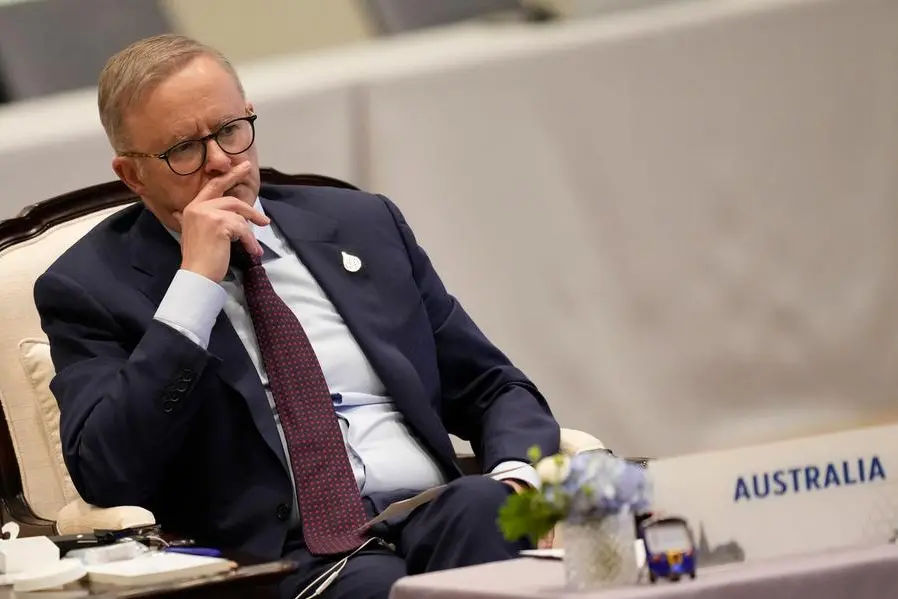PHOTO
Australian Prime Minister Anthony Albanese was due to arrive in China on Saturday for a landmark state visit, a sign that icy relations between the two countries are finally thawing.
Beijing is Canberra's biggest trading partner, but ties plummeted in 2020 after Australia's then-conservative government barred Chinese tech giant Huawei from 5G contracts and called for an inquest into the origins of Covid-19.
A furious Beijing then slapped punitive tariffs on a range of Australian commodities, hitting billions of dollars in trade as the relationship descended into the deep freeze.
But Albanese has sought a reset since taking power in May last year, and his trip -- the first by an Australian leader in seven years -- comes after a string of indications that ties are warming at last.
The prime minister will spend four days in China, dividing his time between the capital Beijing and the eastern megacity of Shanghai, where he is expected to attend the opening ceremony of a major trade fair.
Albanese has said he hopes to keep improving relations with China but has stressed the need to remain "clear-eyed" about the two nations' differences.
His liberal government has tried to walk a fine line between seeking friendlier diplomatic and business links while also countering Beijing's growing clout in the Asia-Pacific region.
"We are two nations with very different histories, values and political systems," Albanese said of China during a visit to the United States last month.
The prime minister warned that China appeared to reject the "status quo" and seek "a region that is much more accommodating of its values and interests".
Beijing has also taken a more cordial tone towards Canberra of late.
Its foreign ministry on Friday hailed the visit as "an opportunity to strengthen communication, increase mutual trust, broaden cooperation, deepen friendship and push for the continued improvement... of bilateral relations".
Chinese leaders would "have an in-depth exchange of views (with Albanese) on bilateral issues as well as on international and regional issues of common concern", ministry spokesperson Wang Wenbin said at a news briefing.
"A healthy and stable China-Australia relationship accords with the fundamental interests of both countries and peoples," he added.
- Tariffs lifted, journalist freed -
Under Albanese's administration, China has abolished tariffs on Australian commodities and indicated it will also lift similar penalties on Australian wine.
Beijing's ambassador has hailed the "relentless efforts of both sides" to bring Australian coal, timber and barley exports back to China, adding in an opinion piece that ties were "at a critical juncture of setting off and sailing off again".
Last month, China released Australian journalist Cheng Lei after three years in detention on opaque espionage charges.
The sons of Australian writer Yang Jun -- who has been in jail in China since 2019 on spying accusations -- have asked Albanese to raise his case and achieve the same "miracle" for their father.
However, points of contention persist.
Beijing has bristled at Australia's security pact with the United States and Britain, and rebuked its decision to purchase nuclear-powered submarines, widely seen as an effort to parry Chinese military might in the Asia-Pacific.
Albanese has also called for defending each nation's right to choose its destiny, upholding human rights and maintaining peace -- including in the Taiwan Strait, which separates China from the self-ruled island it regards as part of its own territory.
Chen Hong, director of East China Normal University's Australian Studies Centre, called Albanese's visit a "journey of hope" but questioned Canberra's ability to diverge from Washington on matters of international diplomacy.
"Australia must have a clear, independent foreign policy... if (it) sacrifices its relationship with China solely to maintain US hegemony in the region, it will harm its own interests," he told the state-backed Global Times newspaper in a Friday interview.





















